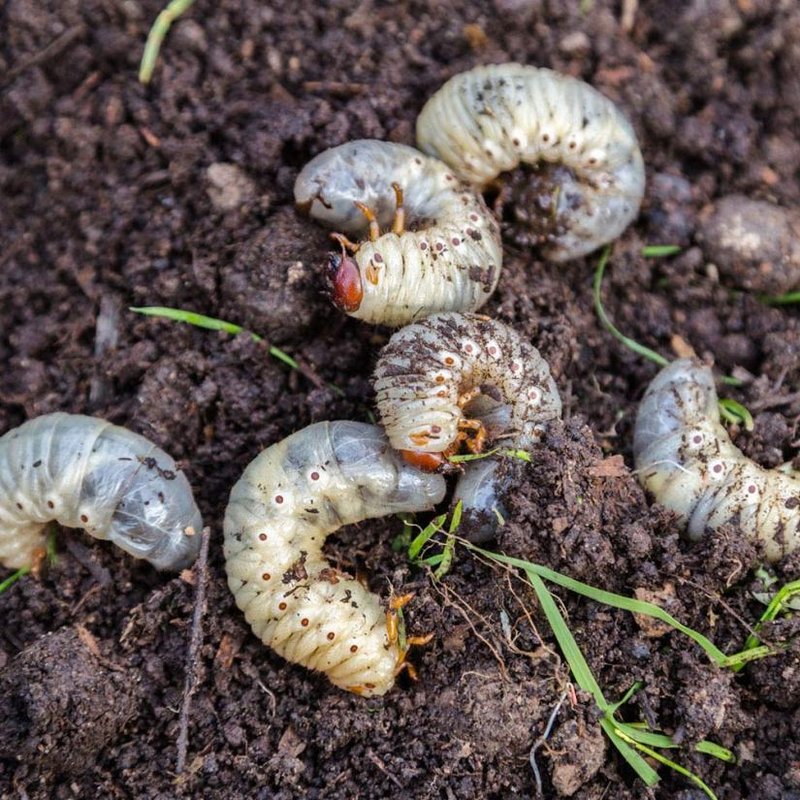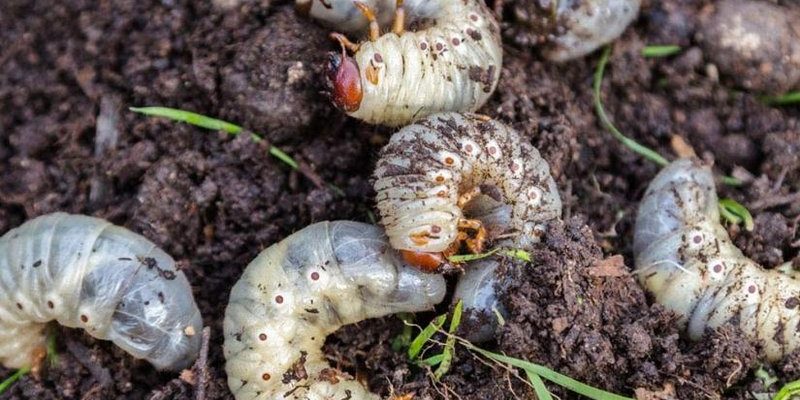
Imagine your garden as a buffet. Grub worms are the diners, and different fertilizers are the dishes laid out for them. Just like some folks prefer savory over sweet, grub worms have their favorites too. Understanding their preferences can help you make better choices for your garden, keeping it healthy and thriving.
In this article, we’ll explore how different fertilizers might attract or repel these pesky worms. We’ll take a look at what grub worms are, which fertilizers are most appealing to them, and how you can manage their presence without losing your sanity (or your plants).
What Are Grub Worms?
Grub worms, or larvae from beetles, are often found lurking underground, feasting on the roots of plants. These little critters can range from 1 to 2 inches long and are usually a creamy white color with a brown head. While they might look innocent, they can cause serious damage to your garden by eating away at root systems, leading to wilting plants and an unhealthy garden.
You might be surprised to learn that there are several types of beetles that produce grubs, including Japanese beetles and June bugs. As adults, these beetles fly around your yard, laying eggs in the soil. Once the eggs hatch, those tiny grubs begin their work, munching on your precious plants.
Knowing what grub worms are can help you understand why certain fertilizers might draw them in. After all, if you know what they like, you can adjust your gardening strategy to keep them at bay.
Do Fertilizers Attract Grub Worms?
Here’s the thing: not all fertilizers are created equal. Some formulations might appeal to grub worms more than others, leading to an invasion in your garden. Grub worms are primarily attracted to organic matter in the soil, which can sometimes be enhanced by specific fertilizers.
Organic fertilizers, like compost or manure, can create a rich environment for grub worms because they promote a healthy soil ecosystem. When you enrich your soil with organic materials, you’re also encouraging the growth of microbes and other soil-dwelling organisms, which grub worms love to munch on.
On the flip side, synthetic fertilizers, while they can promote fast growth, often don’t have the same organic appeal. They may not provide the microbial diversity that attracts grub worms, making them less of a buffet compared to their organic counterparts.
Types of Fertilizers and Their Effects on Grub Worms
To really get into the nitty-gritty, let’s look at some common types of fertilizers and how they interact with grub worms.
- Organic Fertilizers: As mentioned earlier, things like compost, bone meal, and manure can draw in grub worms thanks to the organic matter they provide.
- Granular Fertilizers: These typically contain nutrients in a slow-release format. If they’re organic, they might attract grubs, but synthetic ones may not have the same effect.
- Lawn Fertilizers: Many lawn care products are designed with nitrogen and phosphorus to promote grass growth, but they can also encourage grubs, especially if they contain organic ingredients.
Understanding the different types of fertilizers can help you choose wisely. If you’re struggling with grub worms, it might be best to avoid those organic types, especially in areas where you’ve noticed grub activity.
How to Manage Grub Worms in Your Garden
If you’ve determined that certain fertilizers in your garden are attracting grub worms, don’t panic! There are effective ways to manage these pests without resorting to harmful chemicals.
First, consider implementing a **natural predator** strategy. Birds, for example, are great at keeping grub populations in check. By adding birdhouses or feeders to your garden, you can attract these helpful allies.
Secondly, try using nematodes, tiny microscopic worms that feed on grubs. These beneficial nematodes can be introduced into your soil and will help reduce grub populations naturally. It’s a win-win: your plants stay safe, and you avoid chemical treatments.
Lastly, regularly aerating your soil can disrupt the grub lifecycle. By turning over the top layer of soil, you make it harder for the grubs to thrive and reproduce, keeping their numbers down.
Choosing Fertilizers to Avoid Grub Worms
If you’re looking to keep grub worms at bay, consider these tips for choosing fertilizers:
- Opt for Synthetic Over Organic: While organic fertilizers have their benefits, they may attract unwanted pests. Consider using synthetic fertilizers that offer the nutrients your plants need without the organic appeal.
- Check Ingredients: Always read the labels. Look for fertilizers that don’t contain organic matter or are specifically made to deter pests.
- Use Soil Testing: Before applying any fertilizer, getting a soil test can help you understand what nutrients your garden truly needs, reducing the likelihood of over-fertilizing and attracting grubs.
By choosing the right fertilizers, you can help keep your garden healthy while minimizing grub worm issues.
So, are grub worms attracted to certain fertilizers? Yes, they are! They tend to be drawn to organic fertilizers that enhance the microbial life in the soil. However, with a little knowledge and strategic choices, you can manage their presence effectively.
Remember, gardening is all about balance. Choose fertilizers wisely, invite natural predators, and consider using beneficial nematodes. With these tips, you can create a thriving garden that’s less inviting to pesky grub worms. In the end, you’ll enjoy a vibrant landscape that’s both beautiful and healthy—without the unwanted wrigglers!

